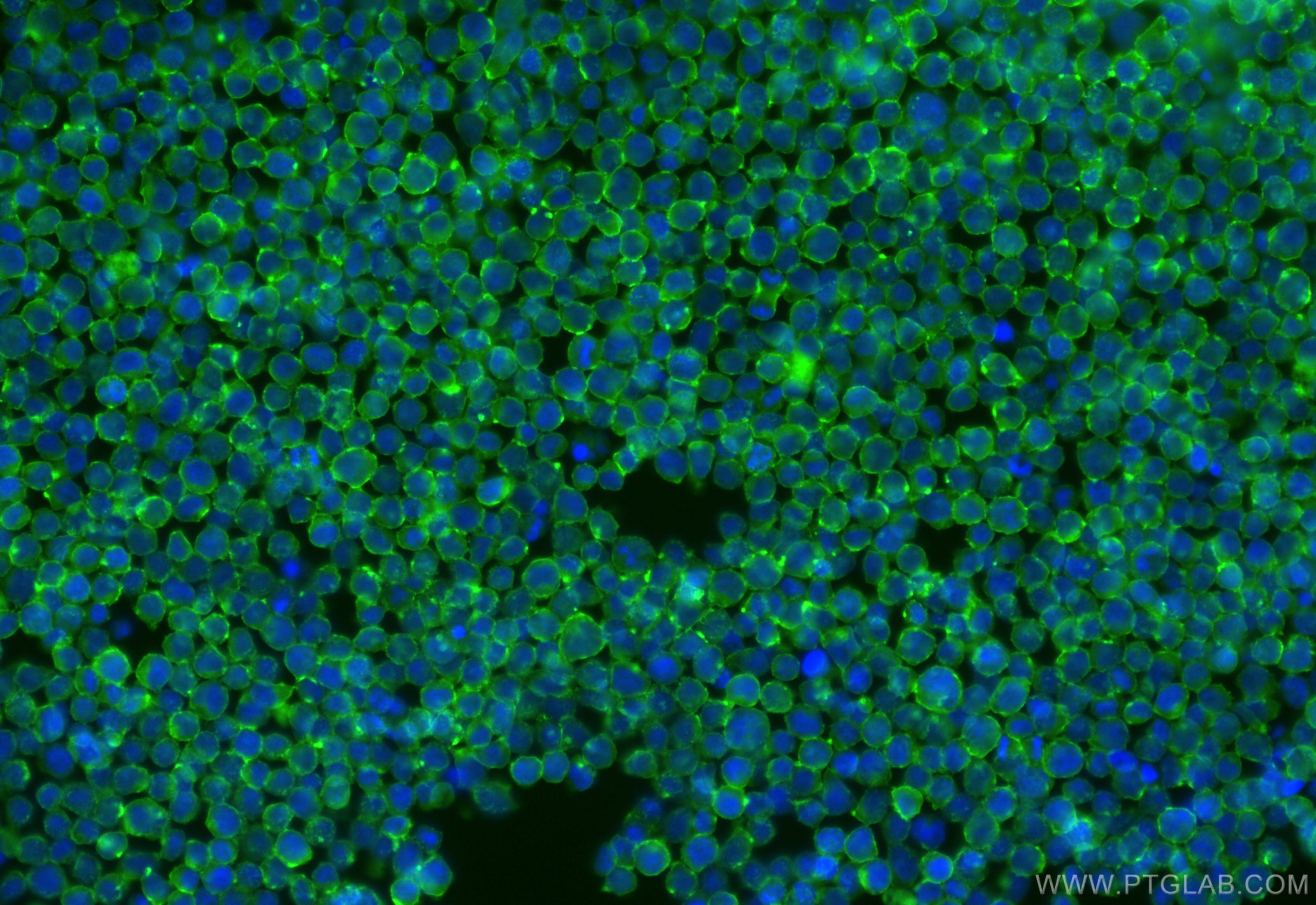验证数据展示
经过测试的应用
| Positive IF/ICC detected in | Jurkat cells |
推荐稀释比
| 应用 | 推荐稀释比 |
|---|---|
| Immunofluorescence (IF)/ICC | IF/ICC : 1:50-1:500 |
| It is recommended that this reagent should be titrated in each testing system to obtain optimal results. | |
| Sample-dependent, Check data in validation data gallery. | |
产品信息
CL488-84500 targets SELPLG/CD162 in IF/ICC applications and shows reactivity with human samples.
| 经测试应用 | IF/ICC Application Description |
| 经测试反应性 | human |
| 免疫原 |
Recombinant Protein 种属同源性预测 |
| 宿主/亚型 | Rabbit / IgG |
| 抗体类别 | Recombinant |
| 产品类型 | Antibody |
| 全称 | selectin P ligand |
| 别名 | SELPLG, PSGL1, PSGL 1, P-selectin glycoprotein ligand 1, CLA |
| 计算分子量 | 412 aa, 43 kDa |
| GenBank蛋白编号 | BC029782 |
| 基因名称 | SELPLG |
| Gene ID (NCBI) | 6404 |
| 偶联类型 | CoraLite® Plus 488 Fluorescent Dye |
| 最大激发/发射波长 | 493 nm / 522 nm |
| 形式 | Liquid |
| 纯化方式 | Protein A purification |
| UNIPROT ID | Q14242 |
| 储存缓冲液 | PBS with 50% glycerol, 0.05% Proclin300, 0.5% BSA, pH 7.3. |
| 储存条件 | Store at -20°C. Avoid exposure to light. Stable for one year after shipment. Aliquoting is unnecessary for -20oC storage. |
背景介绍
SELPLG (selectin P ligand), also known as CD162 or PSGL-1, is a 120 kDa type I transmembrane mucin-like glycoprotein. It is an adhesion molecule expressed on the surface of neutrophils, monocytes, and most lymphocytes as a homodimer of approximately 230-250 kDa (PMID: 7545173; 1378449; 9353350). SELPLG plays a critical role in the early stages of inflammation due to its ability to bind E-selectin (CD62E), L-selectin (CD62L), and P-selectin (CD62P) (PMID: 35597982).
实验方案
| Product Specific Protocols | |
|---|---|
| IF protocol for CL Plus 488 SELPLG/CD162 antibody CL488-84500 | Download protocol |
| Standard Protocols | |
|---|---|
| Click here to view our Standard Protocols |


